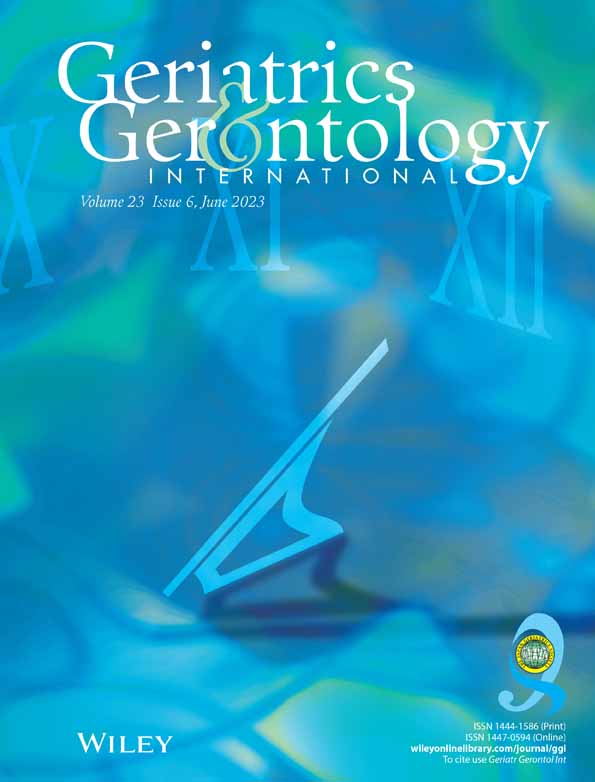Use of the telephone, a universally implemented communication tool, in building peer support networks for people with cognitive decline
Our community-based participatory research (CBPR), which consists of an epidemiological survey and action research in Tokyo, found that (1) 45% of older residents with cognitive decline in the community live alone; (2) 60% of the community residents with cognitive decline had no dementia diagnosis; (3) residents with more complex social support needs had no dementia diagnosis.1 During the COVID-19 pandemic, the social isolation of these groups was accelerated: 35% of the people with cognitive decline experienced social isolation, and 44% of them reported worries about worsening cognitive decline.2 In order to combat social isolation among these community residents, we launched the emergency telephone outreach operation, as the telephone is a traditional but reliable tool that can prevent social isolation.3 Thus, many older residents welcomed the telephone outreach; however, they complained about limited human contact.4 Residents with cognitive decline were significantly less likely to interact with others compared with residents without cognitive decline.5 Our real-world experience revealed that community residents with cognitive decline were physically/cognitivelly fragile owing to social isolation. Building peer support through telephone interactions may be effective in preventing the isolation of older people with cognitive decline, but there is little evidence to support this hypothesis. We report a pilot study examining the effects of peer support using regular telephone calls among elderly people with cognitive decline living in urban areas.
Participants were 17 elderly people (4 males and 13 females) aged 65 or older who attended an introductory class using the traditional Asian board game “Go” in our CBPR center. A paired novice and an experienced person talked on the phone once a week about several issues, including Go, for 3 months between January 2022 and April 2022. Thereafter, a self-administered questionnaire (4 items, 4-point scale) evaluating the telephone interaction and semi-structured interviews were conducted (see Supporting Information). Interviews were recorded, transcribed, and analyzed using the qualitative descriptive approach.6 The Ethics Committee of the Tokyo Metropolitan Institute of Gerontology approved the study, and the participants' written consent was obtained.
The participants' mean age was 80.1 ± 5.5 years, and the mean score of the Japanese version of the Montreal Cognitive Assessment, which screens for mild cognitive impairment, was 21.3 ± 3.1, with 16 subjects (94.1%) scoring below the cut-off value of 25. The percentages of “agree” or “somewhat agree” responses indicated that the telephone interaction was “enjoyable” (94.1%), a “burden” (5.9%), and “had a positive effect” (88.2%), and that the participants “would like to talk on the phone sometime in the future” (76.5%). In the interviews, the positive responses were “(Because I was looking forward to the phone call so eagerly) I couldn't wait for the phone call”; “It was easy to talk because we had a common topic”; “We talked about things other than Go”; and “I want to go out with my pair partner”, while others were “I was careful about what to talk about” and “It was difficult to maintain psychological distance from my pair partner.”
One man with Parkinson's disease usually went out only for shopping and often lay in bed at home. He was invited by an acquaintance to attend a Go class, but at first he did not have the confidence to continue because Go was too difficult. However, the woman he paired with over the phone always encouraged him to continue playing Go by kindly teaching him about Go and taking care of his health. He gradually became interested in Go and talked with her on the phone for nearly an hour each time. He is very grateful for having been paired with her.
Our pilot study suggests that peer support using regular telephone calls would be effective in preventing social isolation among older residents with cognitive decline. Although this project originated from an emergency project during the COVID-19 pandemic, promoting telephone interaction, a universally available communication tool among older residents, would be one strategy to establish dementia-friendly communities.
Acknowledgements
We would like to thank Editage (www.editage.com) for English language editing. This work was supported by JSPS KAKENHI grant number JP21K19687.
Disclosure Statement
There are no conflicts of interest by any author for this study.
Open Research
Data availability statement
The data that support the findings of this study are available from the corresponding author upon reasonable request.




